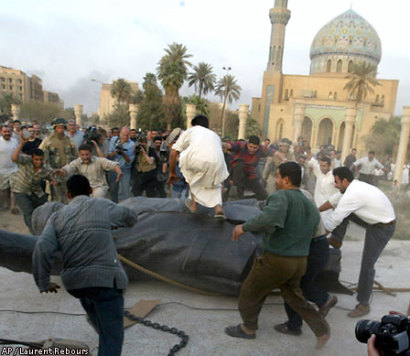Just Forget It!
 Sunday, July 22, 2007 at 06:47AM
Sunday, July 22, 2007 at 06:47AM  Aside from speed, one of the computer’s most vital features is memory. It consists of two elements: RAM (random access memory), equal to the brain’s short-term memory, and the hard disk storage, or long-term memory. Computer operators can record words, pictures, sounds, video-clips, spreadsheets and other complicated files and store it in the memory. Everything works fine—-as long as they understand the delete key. With a single stroke, a file that took hours or even days to put together can be wiped out. And the computer does not know the significance of one file over another. It doesn’t know a good letter from a bad one, a priceless picture from a worthless one.
Aside from speed, one of the computer’s most vital features is memory. It consists of two elements: RAM (random access memory), equal to the brain’s short-term memory, and the hard disk storage, or long-term memory. Computer operators can record words, pictures, sounds, video-clips, spreadsheets and other complicated files and store it in the memory. Everything works fine—-as long as they understand the delete key. With a single stroke, a file that took hours or even days to put together can be wiped out. And the computer does not know the significance of one file over another. It doesn’t know a good letter from a bad one, a priceless picture from a worthless one.
Do you ever wish you had a delete key connected to your brain? Wouldn’t it be great to just hit a key, and suddenly ugly, painful memories would vanish? What would you wipe out if you could? An abusive relationship? A stupid mistake? An ill spoken word? The death of a loved one?
Our minds do try very hard to erase painful scenes from memory. The problem is that we don’t do a very good job of it, and the pain often gets shoved into some other form. Hence, we have the following terms:
- Denial: An attempt, sometimes subconscious, to tell ourselves that something didn’t happen;
- Repression: Pushing a bad memory back so far that it cannot be recalled without intervention;
- Rationalization: Fabricating elaborate explanations for one’s own or someone else’s failure.
In addition, we have compulsions, delusions, displacement, fantasy, projection, withdrawal, regression and other terms pertaining to psychological matters. All are ways that people try to forget the things that cause them pain. We want to alter the state of things in our mind.
These mechanisms rarely work. Most of the time they make things worse. People commit crimes, have nervous breakdowns, or even take their own lives because they cannot forget.
So, how does forgiveness work? How can we forget something that really happened and will not go away? How can we forgive someone of hurt when our mind keeps bringing it back? How can we truly be free if our memory won’t allow us to forget?
There are some things that we cannot forget: We must never forget the things God has done for us. We must never forget the Word of God; Deuteronomy 4:23 “Take heed unto yourselves, lest ye forget the covenant of the LORD”; We must never forget God Himself; Deuteronomy 6:12 “Then beware lest thou forget the LORD, which brought thee forth out of the land of Egypt, from the house of bondage.
There are some things that we must forget: Philippians 3:13 “Brethren, I count not myself to have apprehended: but this one thing I do, forgetting those things which are behind, and reaching forth unto those things which are before.”
What is the secret of forgetting the painful past? Three things must be remembered in order to forget.
The cleansing power of the blood of Jesus. The blood, constantly applied, counteracts the past. “If we confess our sins, he is faithful and just to forgive us our sins, and to cleanse us from all unrighteousness.” I John 1:9.
The elevating power of the Spirit of Christ. He will lift us up out of our memories. Ephesians 2:1-6 “And you hath he quickened, who were dead in trespasses and sins; Wherein in time past ye walked according to the course of this world… But God, who is rich in mercy, for his great love wherewith he loved us, Even when we were dead in sins, hath quickened us together with Christ, (by grace ye are saved;) And hath raised us up together, and made us sit together in heavenly places in Christ Jesus:
The constantly abiding presence of God. Lean on Him! Psalm 23:4 “Yea, though I walk through the valley of the shadow of death, I will fear no evil: for thou art with me; thy rod and thy staff they comfort me.”








